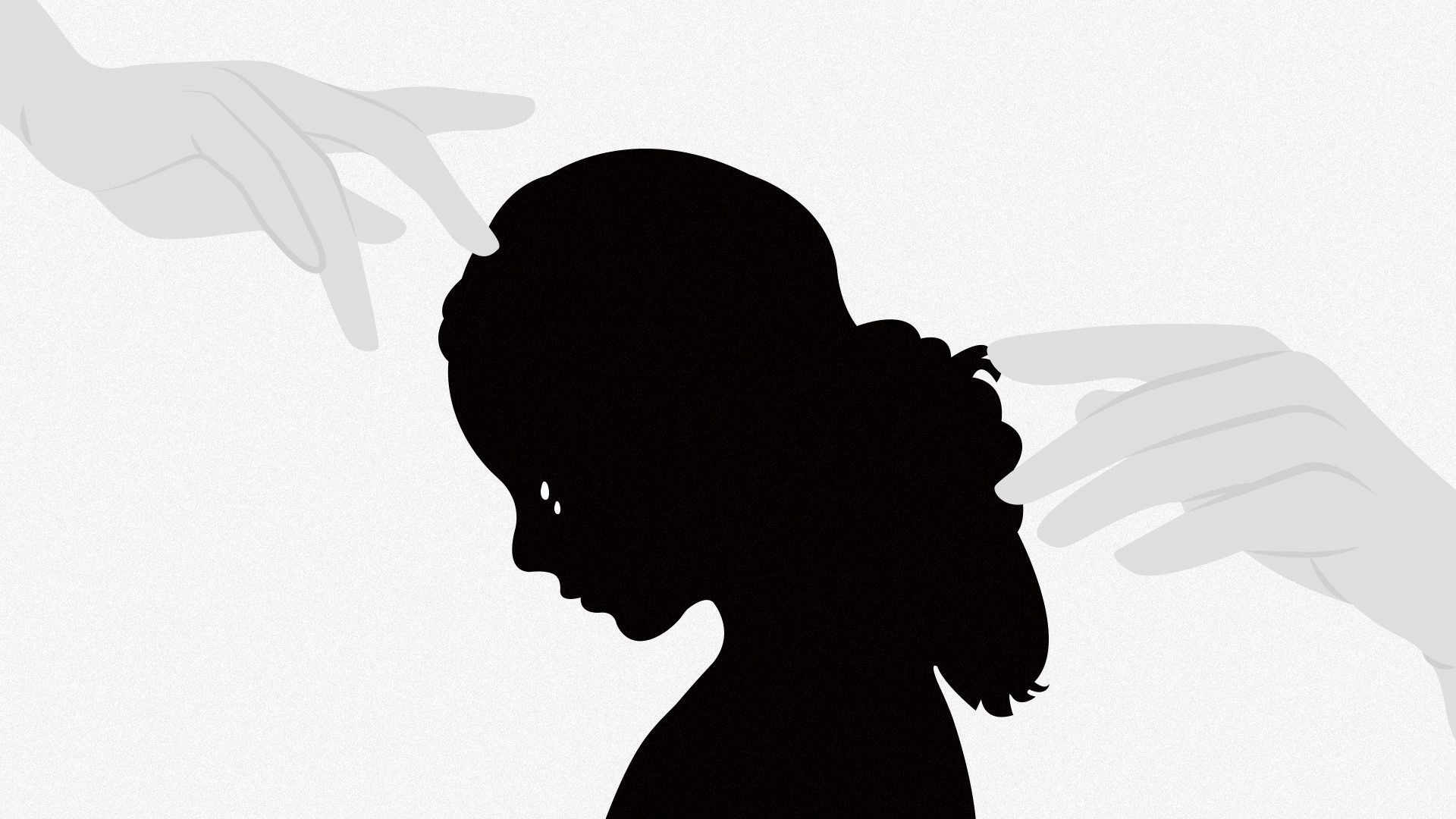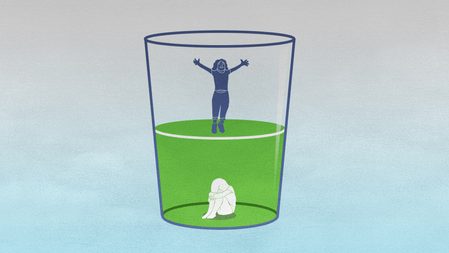SUMMARY
This is AI generated summarization, which may have errors. For context, always refer to the full article.

Grief is tough. Some of us may refer to grief as “just sadness,” but sadness is usually temporary – grief is almost always not. It is a continuous internal process or journey that does not end; it’s something we learn to live with, and not something that leaves when we want it to. Grief lingers. It permeates.
Grief is the internal part of us that tries to process the strong and painful emotions that come after a deep and/or sudden loss in our lives. According to grief and relationship coach Cathy Sanchez-Babao, grief “is a collection of feelings and emotions that arise from an experience of loss.”
There’s no textbook rule on when grief is valid – people can experience grief not just after a loved one’s death, but even after a family separation, divorce, break-up, terminal illness diagnosis, or a home relocation.
If there’s one resounding emotion that we’ve been experiencing as a collective, it is most probably grief. Not only has the pandemic caused loss after loss, but it has also robbed us of the time to process these losses and the closure to help us move forward.
We may think that grief is only limited to adults, but children can experience grief, too. However, children usually don’t manifest grief as adults do; they show the signs differently.
As parents, caretakers, grandparents, and older siblings, it is crucial to be able to recognize how grief can manifest in young children. We sometimes forget that they too can experience the same emotions as we do, but don’t exactly know how to process them yet.
Signs of grief in children
Occasional crying tantrums and low moods are normal in children, especially after a devastating event. However, grief works more subtly and slowly, which makes it even more important to spot.
If you’ve recently experienced a death in the family, or if the child has suddenly lost a parent or older sibling, it is crucial to pay extra attention to how the child is coping with the loss.
According to Cathy, children experiencing grief may become clingier to their parents, siblings, or caregivers. They may also start having academic issues in school, as well as difficulty in concentrating on tasks. Some may even regress developmentally (bed wetting, thumb-sucking) and start having sleep problems.
“There is now a mental health crisis in children globally due to the effects of the pandemic. Globally, so many children have lost parents or primary caregivers. All of those children will experience grief, ” Cathy told Rappler.
The isolation and loneliness caused by the pandemic, with the addition of safety protocols (children not allowed to go outside), can also negatively contribute to the mental health states of children. If your child no longer shows interest in play, creativity, or trying out new experiences, that could also be a cause of concern.
Why does grief feel harder now?
It’s not just you – processing grief (or any other emotion, for that matter) has become increasingly more difficult in the pandemic.
We can no longer visit our sick grandparents in the hospital anytime we want, or even just visit them at their homes. Loved ones have ended up dying alone in the emergency room, while all their family can painfully do is watch them take their final breaths through a screen. Even laying loved ones to rest has become a privilege – not everyone can hold a wake or a burial. Paying one’s respects through Zoom funerals will never be the same.
“Grief is definitely harder in a pandemic, because there is no real sense of community felt,” Cathy said.
“We are no longer able to be present with the loved ones at the end of their lives. Most of us are not able to say goodbye,” she added.
As a parent, how can you help?
Concerned about your child’s behavior lately? Attending to your child’s grief can be overwhelming, especially if you haven’t been able to attend to yours yet.
Cathy says that as adults, we must first take the time and effort to “recognize and acknowledge the feelings we are going through, and attend to those feelings.” As the saying goes, you have to put on your own oxygen mask first before you can help others, especially your own children.
“Parents model healthy grieving for their children,” Cathy said.
Helping your child through grief also varies depending on the child’s age. “Find out first what they know. In young children, do not give out too much information than what is necessary,” Cathy advised.
Parents must remember to always be honest and to not use euphemisms. Don’t cut around corners or beat around the bush; kids can be very empathetic, and can pick up on subtle cues. The worst thing that can happen is to lose your child’s trust and respect.
It is also important to talk to your child using age-appropriate words. Talking them through their emotions like an equal can help them process what they are internally going through.
Self-expression is also ideal for children, such as dance, art, or singing. “Help them find healthy ways to release their sadness – drawing, journaling, or through play. Encourage them to talk about the loved one that has died. Create memory books using words and pictures,” Cathy said. Parents can also consider seeking a child or family therapist, who are professionally skilled in that aspect.
And maybe the most important to thing to remember? Don’t forget to show your children even more love. Children need the extra comfort, security, and care even more now, so as parents, don’t scrimp on the hugs, kisses, cuddles, and quality time! Reassure them, and let them know it will be okay, and you will always be there for them.
In vulnerable times, children need to continue to feel connected, secure, and loved.
Helping them help themselves
According to Stacy Leatherwood, MD from the Henry Ford Department of Pediatrics, one way to help children move through grief is to allow them to share their story. “Telling their story is a healing experience,” she said, so the best thing an adult can do is to actively listen to their stories.
“Children also need continuity, like their normal activities,” Stacy said. Even if times feel far from normal, try your best to create a structured environment and reliable routine for your children. Keep them engaged in online school, and maybe set aside some “outdoor time” afterwards to play and get some fresh air. If it’s reading time before bedtime, maintain that bonding habit.
Another tip is to create a “Calm Down Kit” together – a box of special activities your child can do anytime stress or a strong emotion arises, or if they just need some alone time. Let your child get creative with their special box – it can be filled with their favorite music, toys, a journal, slime, coloring pages, photos, or mementos.
Teaching your child healthy coping mechanisms at an early age can also help strengthen their resilience and teach them optimism, both of which are very important traits to have when faced with life’s adversities.
Also, it’s important to take constructive action. “If possible, allow them a last visit with their loved one. If not possible, have a private memorial together; share stories, write letters, and celebrate their life,” Stacy suggested.
This could be a simple yet symbolic event you can do in your backyard, such as writing a letter, planting a tree, or releasing a balloon into the sky. It is important to concretely perform an action that allows them to demonstrate their love and grief for the person lost, both as a way to say goodbye but to also let them free.
The gesture alone can be cathartic, and may just be what a young griever needs to lessen the weight of grief, even for a bit. It could also be a symbol of hope – that even though the loss will always be there, there will always be ways we can help ourselves move forward, even in these times. – Rappler.com
Add a comment
How does this make you feel?




![[Time Trowel] Evolution and the sneakiness of COVID](https://www.rappler.com/tachyon/2024/02/tl-evolution-covid.jpg?resize=257%2C257&crop=455px%2C0px%2C1080px%2C1080px)


![[Two Pronged] I think I’m bipolar – can I handle it without medication?](https://www.rappler.com/tachyon/2024/03/two-pronged-BiPolar-Disorder-without-meds.jpg?resize=257%2C257&crop=250px%2C0px%2C720px%2C720px)


![[Bodymind] Rising above adverse country experiences under Duterte](https://www.rappler.com/tachyon/2024/03/duterte-country-experiences-mar-15-2024-2.jpg?resize=257%2C257&crop=305px%2C0px%2C720px%2C720px)
There are no comments yet. Add your comment to start the conversation.